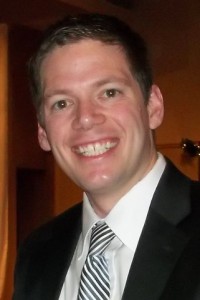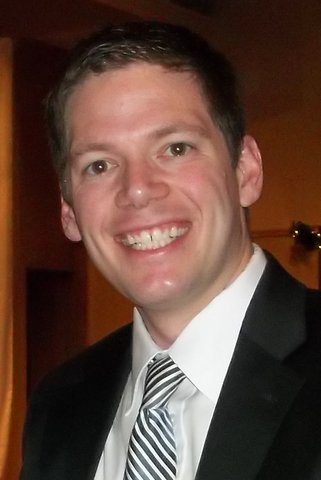Calling himself a little unorganized in high school, Cliff Plymesser, a 2005 construction engineering alumnus, didn’t spend much time planning for college. He grew up with a love for construction and an interest in engineering, so he decided to combine the two at Iowa State—the only place he applied—and found his career.
Plymesser took a job with EFCO, a leading international provider of concrete formwork systems based in Des Moines, Iowa, straight out of college. He began as a project engineer, saying he was “thrown into the mix right away.”
Without any internships, Plymesser may not have had the same experience as other graduates, but his education at Iowa State was extremely helpful. “Looking back,” he says, “the program really did a great job of preparing me. I use almost everything I learned as far as scheduling and estimating, along with what we learned in the different design classes.”
He started out with a few big assignments, including high-rise projects in San Francisco and Chicago. Plymesser was also one of three engineers who designed formwork for the large elevators in the Freedom Tower at One World Trade Center.
“It’s a pretty cool experience, being able to say ‘I was a part of that,’” says Plymesser of his many projects. His favorite project, though, won’t be seen in use for several years. He led the design for a 20-mile-long elevated bridge to be located on Oahu, Hawaii. While EFCO’s part of the job is complete, construction of the bridge hasn’t started yet.
Plymesser says he is excited to go see the bridge when it’s finished even with that being years down the road. “It’s a proud moment when the formwork I designed is used for a bridge. But seeing it out in action with people using those structures—it’s pretty surreal.”
He has been a full-time engineer for eight years and was approached three years ago about becoming a lecturer in the civil, construction and environmental engineering department.
The lecture Plymesser teaches is a formwork design class, which he created from scratch. “They asked me to write all new material, so I took the first semester week by week,” he says. “But now I have a good foundation, and I really enjoy working with the students.”
With only minimal experience in teaching at training courses for EFCO, Plymesser says the transition to lecturer was a bit challenging. His knowledge of the subject matter helped ease him into the process until he became more comfortable, learning the best way to reach his students as he gained more experience.
And he’s glad he stuck with it. Teaching is something he loves to do, which he says is because he enjoys what he does for a living. Engineering has given him many opportunities, including chances to network with others in industry.
“I meet a lot of high-caliber people and learn a lot from them about how to manage a project, how to run a project—just how they do what they do and what’s made them so successful,” Plymesser says. “Projects come and go, but you learn the most from people.”
He also realized how beneficial it is to find a mentor, which he says is the most important lesson he learned after college. “I found a mentor—Mark Gilbreath—here at EFCO who just really helped me through those challenges, such as getting into a career and learning about the industry and everything I needed to be doing,” says Plymesser.
Finding a mentor is just one piece of advice Plymesser shares with his students. He also tells them to work hard. “It’s not supposed to be easy, so you’ve got to stick with it and work hard until you get it done.”
